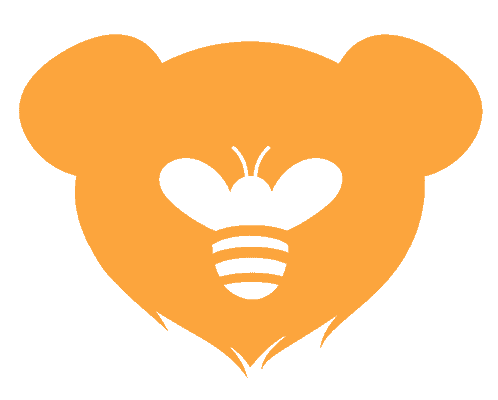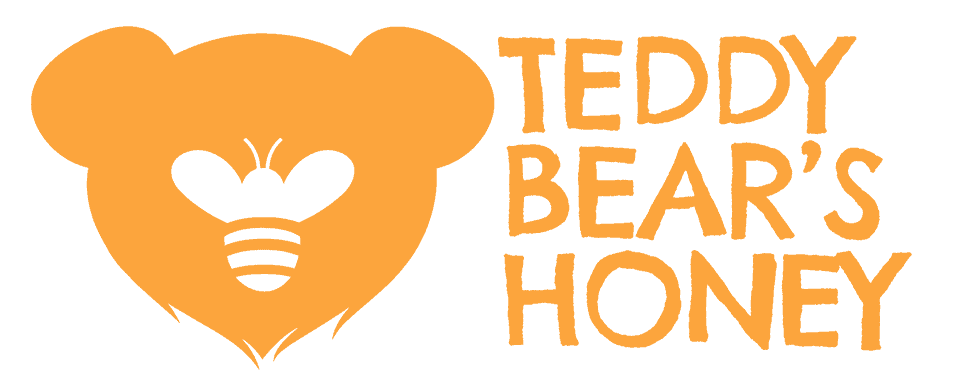We all know smoke is the most traditional way to keep any beekeeper’s bees calm, and it is a method that has been used for many years. However, many modern beekeepers have their reasons for not wanting to use smoke on their bees. Is there a way to effectively calm bees without smoke?
You can calm bees using sugar water spray, essential oils, or a bee manipulation cloth. Beekeepers play a big role in calming bees and should visit hives during the right time and weather conditions. They should also wear the right gear, keep calm, be hygienic, and breathe through their noses.
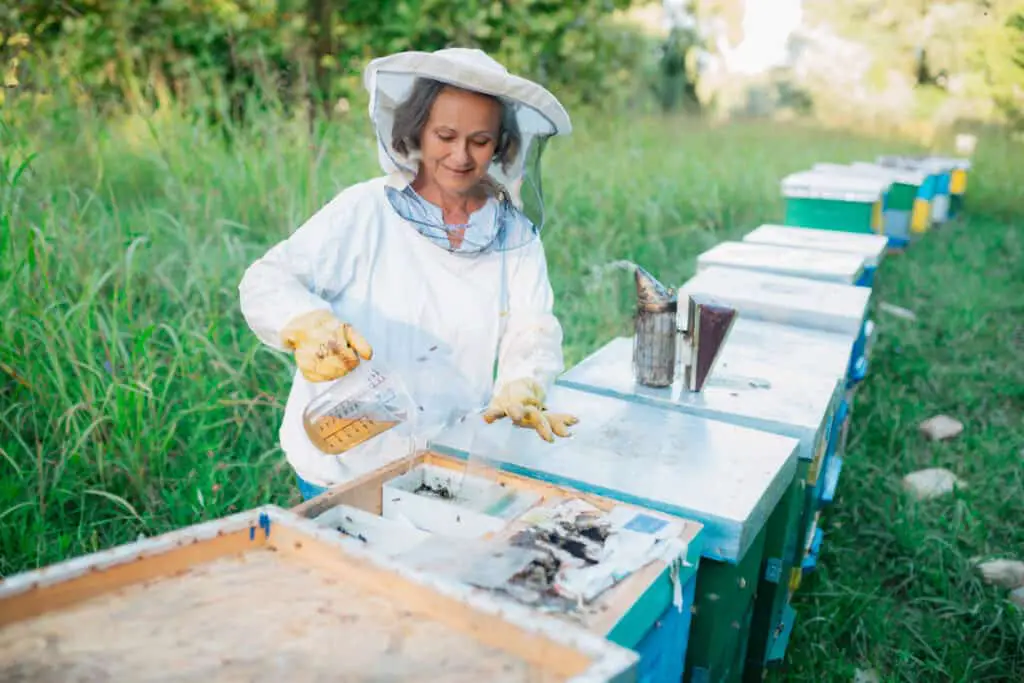
Keeping your bees calm without using smoke could take some trial and error and getting used to. However, it’s not impossible, and it’s all about taking the correct approach. Keep reading with us as we discuss how you can keep your bees calm without using smoke!
Alternative Ways To Keep Your Bees Calm Without Using Smoke
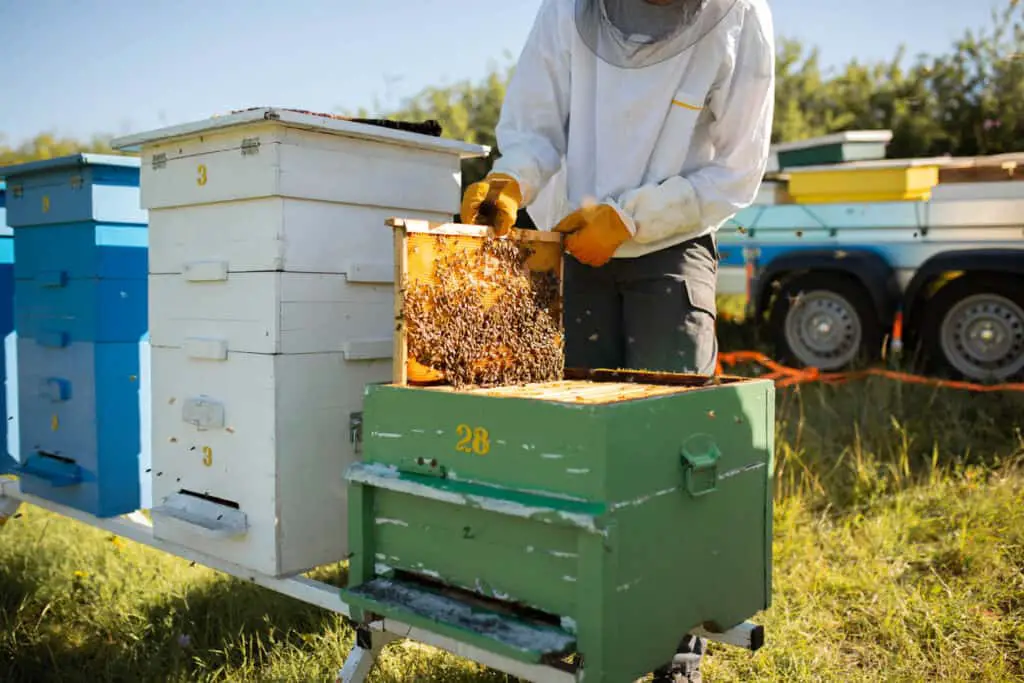
If you’re looking for some alternative ways to keep your bees calm, you can practice any of these methods listed below, as they are less harmful than using smoke on your bees, and they won’t harm you!
Use Sugar Water Spray To Calm Your Beehives
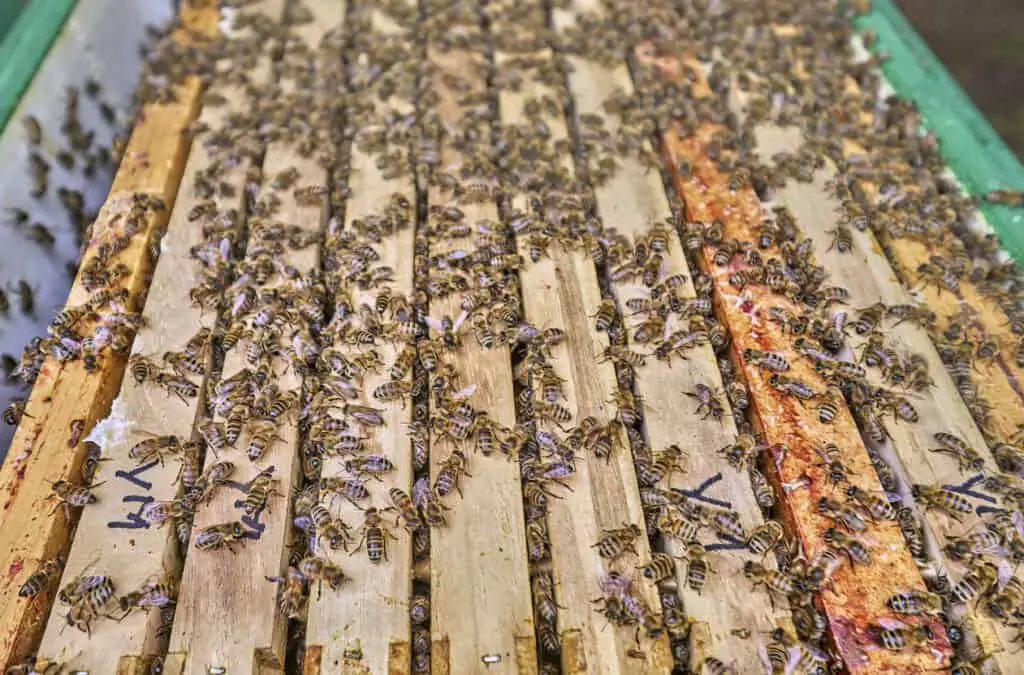
If you’re working with a reasonably new hive, it is possible that the bees are not very comfortable in their new home yet.
Before bee smokers were invented, beekeepers always used sugar water to calm their bees before working with a hive.
Bees love sugar, and using a sugar water spray to calm them down is much different than using a bee smoker for the job.
Using a sugar water spray is very popular, and many modern beekeepers see it as a much better and safer way to calm their bees, especially new bees that may want to flee from the hive if you use a bee smoker.
When you spray your bees with sugar water, they will be coated in a light sugar coating. Instead, they will use their energy cleaning the sugar off their bodies rather than attacking you.
The bees will become distracted from what you’re doing in their hive and enjoy the sweet treat you sprayed all over them!
Using sugar spray on any new hive will encourage the bees to stay there, as it feels like an excellent food source!
Use A Bee Manipulation Cloth For Calm Bees
If you don’t want to spray your bees and their hives with sugar water, you can also use a calming cloth to calm your bees!
To do this, you must calmly and carefully open the hive you want to work on, then lay the cloth over the top of the bee box.
You can soak or spray the cloth with a sugar mixture or an essential oil mix for some added calming effect.
The cloth will work by keeping the bees in the dark and protected during your hive inspections. This will keep them happy and calm, and they won’t view you as a threat because they can’t see you!
When your bees are covered, they will be unable to fly around the top bars of their hive. Instead, the cloth will gently hold them down close to the bottom part of their hive.
A cloth will also protect your bees during your hive inspections and minimalize the risk of you accidentally crushing a few of them.
If you’re looking for special manipulation cloths, you can find them at a beekeeping store, but you can also just use a clean towel or rag, as it will work just as well!
Essential Oils Will Naturally Calm Bees
If you’re looking for a more natural way to calm your beloved bees, you can make your own calming spray! Essential oils such as lemongrass and spearmint will work wonders for calming those aggressive bees, and just six drops in a quart spray bottle will do the trick!
However, when you decide to go this route, it may be helpful to keep in mind that you should never soak your bees.
Instead, you can spray your mixture only around the inner walls of the beehive. When you use essential oils to calm your bees, it’s not the oil or the moisture that calms them, but it’s the scent.
What Can The Beekeepers Do To Calm Their Bees?
Beekeepers play a huge role in keeping their bees calm. It doesn’t matter if you use all the calming essential oils or sugar water spray in the world, how calm your bees are will largely depend on you as the beekeeper.
Let’s take a more in-depth look at the critical things you can practice to keep your bees calm without having to resort to a smoker:
Plan Carefully When You Want To Inspect A Hive
Never do a hive inspection without having a purpose. Always have a reason and decide in advance what you want to do. When you need to remove a hive’s top and inner cover, you should consider placing them in a location where you can rest a box, as it is always a good idea to keep an active hive away from the ground.
Choose The Right Conditions And Time To Inspect Hives
As any good beekeeper should know, bees have preferred conditions and times regarding the temperature and weather. Bees will immediately be in defense mode when you open their hives during the night, as the conditions will likely be cold.
If you want to make sure your bees are kept as calm as possible, it would be best to open their hives in the middle of the morning, when most of the foragers have already left the hive.
Also, it would be best to consider the weather conditions, as they should be warm and sunny. Never try to open or work with your hives when the weather is cold and gloomy, as the bees will not be happy and docile!
Always Wear Your Protective Gear
There is a reason why beekeeping suits exist and why so many beekeepers rely on them. Not only do beekeeping suits provide well-needed protection, but they will also help you keep calm when working with your bees.
If you know that the bees can’t sting you, you will be more likely to remain calm. However, if you decide not to go for a beekeeping suit, you must choose your clothes wisely!
Bees despise dark colors, and they will become alarmed and defensive if you do your beekeeping chores wearing dark-colored clothes.
Instead, you should wear light-colored clothes with little to no contrast. All white, beige, or tan colors would be the best choice.
Additionally, you need to make sure your clothes are clean. It doesn’t matter what you decide to wear. Always wash it before working with your bees.
If the bees smell other bees on your clothes, it may cause them to become agitated.
Furthermore, you should never choose only one outfit for all your beekeeping activities. If a bee sits on you and stings the fabric, they will leave their alarm pheromones and smell it the next time you visit their hive.
For this reason, it becomes very apparent that you must. Just as your clothes should be clean when you handle your bees, you should also be clean.
Although bees are attracted to the smell of fresh sweat, they do not like the smell of dried and old sweat. For this reason, you should always take a shower before wearing your beekeeping outfit or suit.
Keep Quiet For Bees To Keep Calm
Just as you won’t like it when something or someone is making a lot of noise near your home, bees will also become alarmed when you make loud noises close to their hive.
Most beekeepers will keep quiet whenever they are close to their hives, as it will alarm their bees. Because of this, it would be in your best interest to keep quiet around your bees, as they will stay calm.
Any loud noises will startle them and make them jumpy and defensive. This is why it is essential to never work with your hives if your neighbors are mowing their lawns, have generators running, or if it is during a high traffic time in your area.
Remain Calm And The Bees Will Return The Favor
Whether you use a calming solution or not, you, as the beekeeper, should behave in a certain way when you’re handling your bees. Staying calm is key to being a successful beekeeper, which is not something a lot of people can do.
When you are stressed or anxious, your anxiety will be spread and felt by the bees. If you show them you are afraid, they will give you a good reason to be! When you’re working with your bees, do your best to stay calm.
Always pay close attention and know what your next moves are. Never wave your arms around in the air, and never become distracted by people around you. Also, refrain from taking your phone with you, as the noise or vibrations can also startle them.
Always focus on the task at hand! It might also benefit you to take note of your surroundings before opening your hive.
Make sure that everything is calm, and if you see any activity around you, such as children, animals, or neighbors, you may want to consider rescheduling your hive inspection or chores.
Always Handle Your Bees With Care
Unfortunately, when you decide that you don’t want to use a smoker on your bees, it means that your bees will be much more active. This also means that there is an increased risk of you crushing a few bees while you’re working on the hive or completing your activities.
It would be best to try as hard as you can not crush any of the bees if possible. When you crush a bee, the bee will release an alarm pheromone. This pheromone will then be communicated to the other bees in the hive, becoming highly defensive.
The best way to practice not crushing any bees is to move very slowly during hive inspections. Be very intentional with every move, and wear tight-fitting gloves or no gloves.
A common mistake many new beekeepers tend to make is wearing gloves that have a loose fit. As a result, many of these beekeepers lose control and bump or drop more objects, which only angers the bees more.
Be Aware Of How You Smell
As we mentioned earlier, bees highly dislike the smell of old sweat, although they are attracted to fresh sweat because of its minerals.
Never be ashamed or alarmed when you notice some bees attempting to drink your sweat for this reason!
It would be best to shower just prior to opening your hive and try to avoid putting on perfume or deodorant containing strong smells before interacting with any of your bees!
Try To Breathe Through Your Nose
Interestingly enough, bees are very intuitive and therefore know that their predators have hot breath. In fact, bees have evolved to react defensively to carbon dioxide!
As you learn more and more about how to become relaxed and remain calm around your bees, it is crucial that you pay close attention to the way you breathe.
Never exhale heavily or sigh when you’re working with a hive or doing a hive inspection. Learn to breathe lightly and always through your nose instead of your mouth.
Conclusion
Now that you know of all the ways you can calm your bees without having to use a smoker, you can get creative and try the methods! However, it would be good to keep in mind that your beekeeping practices and techniques will significantly impact your bees’ temperament and how they will react when they sense you near their hives.
And remember, if you notice your bees are more aggressive than usual, it might be better to reschedule your hive inspection for another day!
Resources
https://grampashoney.com/calming-down-bees-no-smoke/#How_to_calm_bees_without_smoke
https://www.perfectbee.com/blog/calming-your-bees
https://honestbeekeeper.com/calm-bees-without-smoke/
https://www.backyardgardenlover.com/how-to-calm-bees/
https://www.dw.com/en/sweetness-of-flowers-key-to-calming-bees/a-18934729
